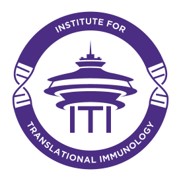
Recent advances in next-generation sequencing technologies have greatly increased the availability and utility of genomic and transcriptomic data. Collaborations at the interface of genome science and immunology will use next-gen sequencing and bioinformatics to shed new light on how certain mutations drive cancer, how others underlie hereditary human diseases, and more. The ability to glean genomic data from single, rare cells—such as antigen-specific B cells or tumor precursors—opens up new possibilities for research with precious clinical samples. Potential collaborations within the ITI might focus on single cell molecular profiling (transcriptomic, epigenomic, VDJ and/or proteomic) of samples derived from specific immune or disease states, or large-scale, multiplex perturbation and phenotyping of genes or enhancers involved in the immune response.

